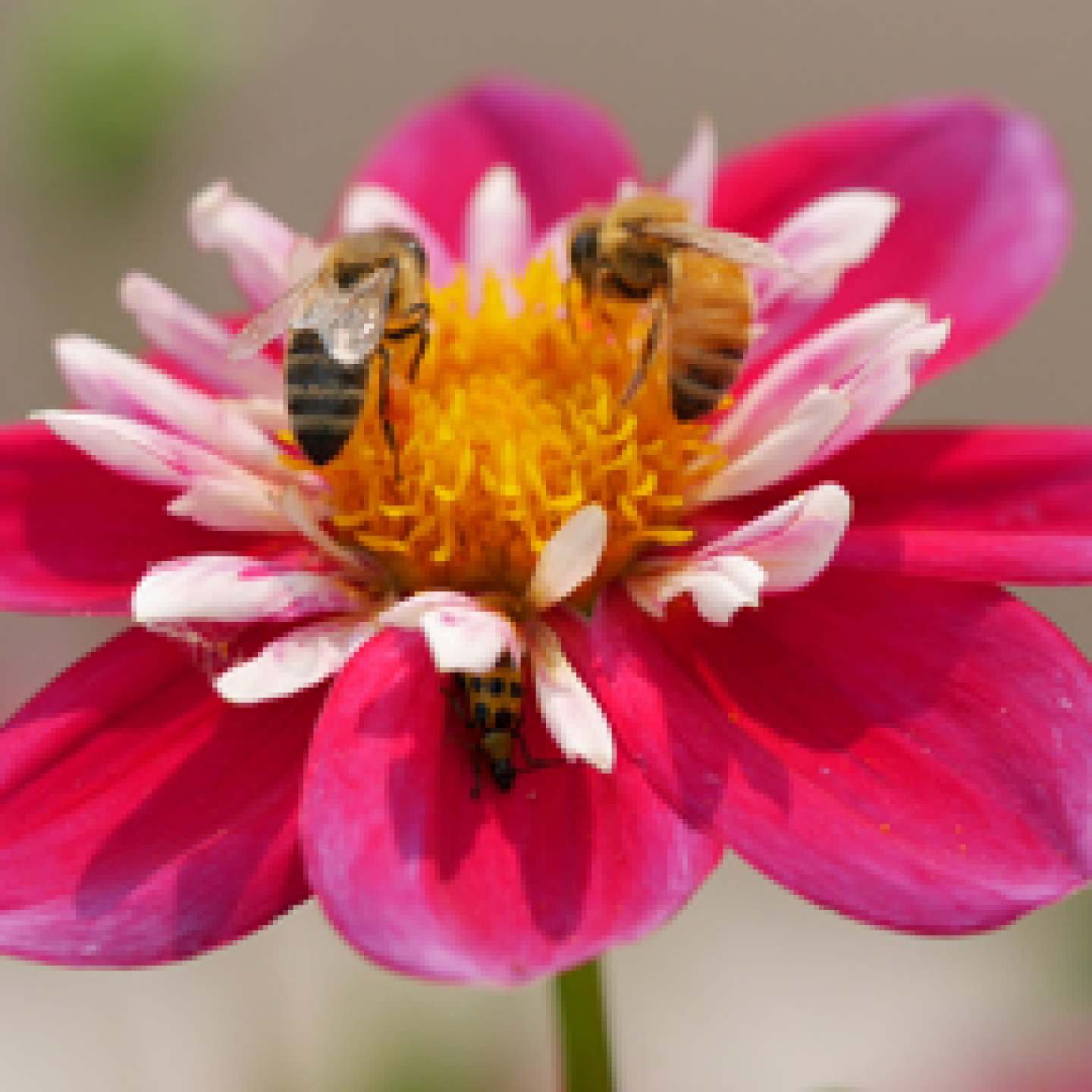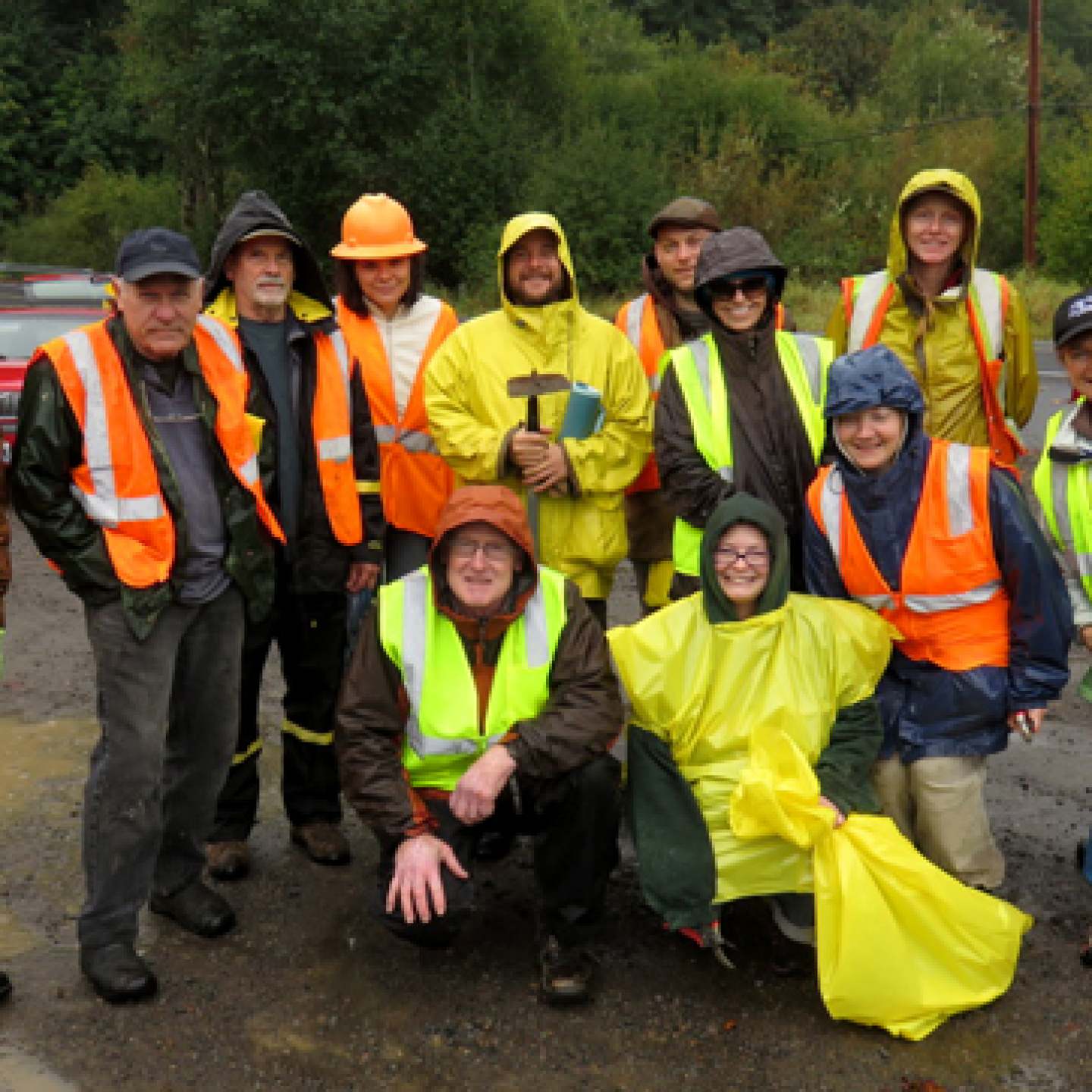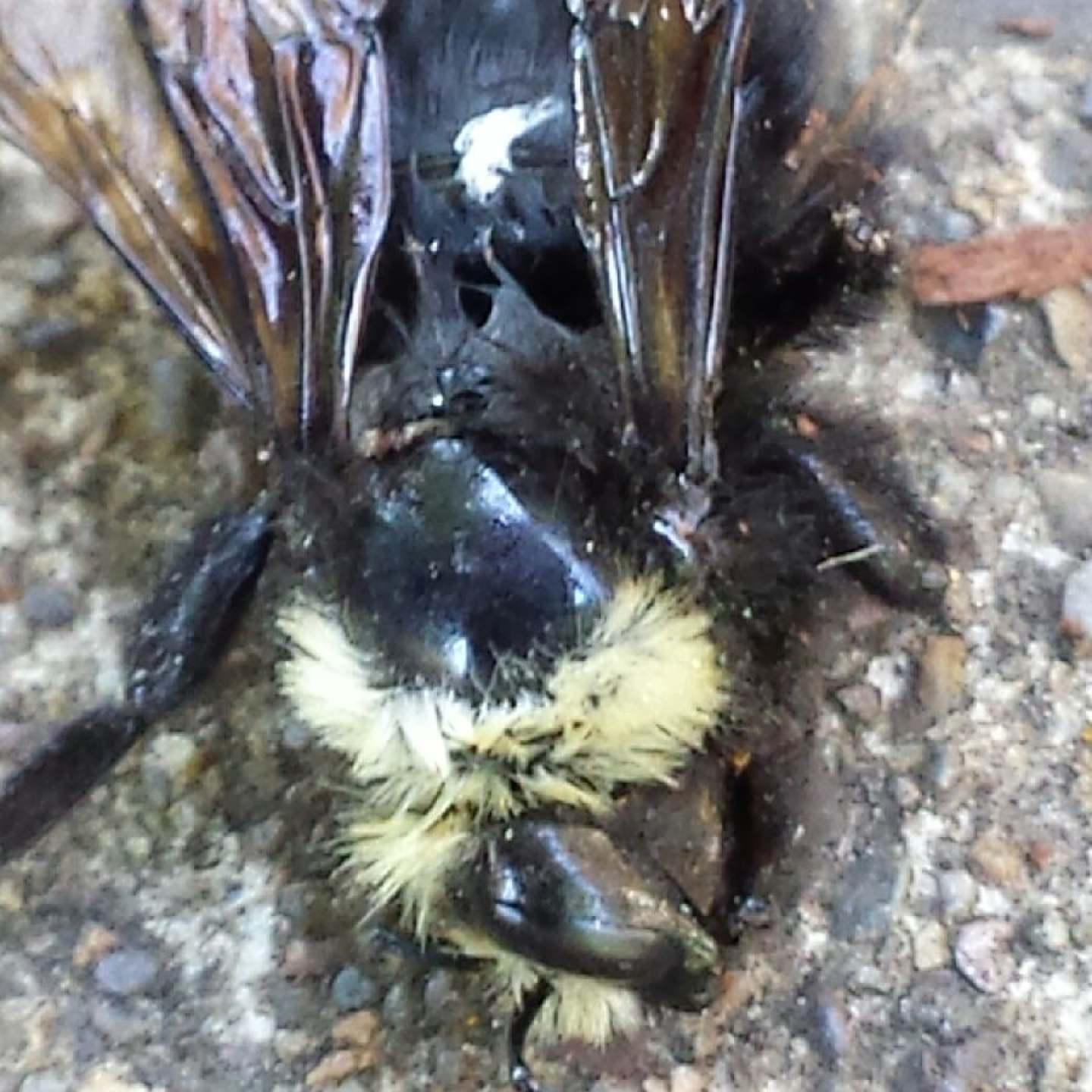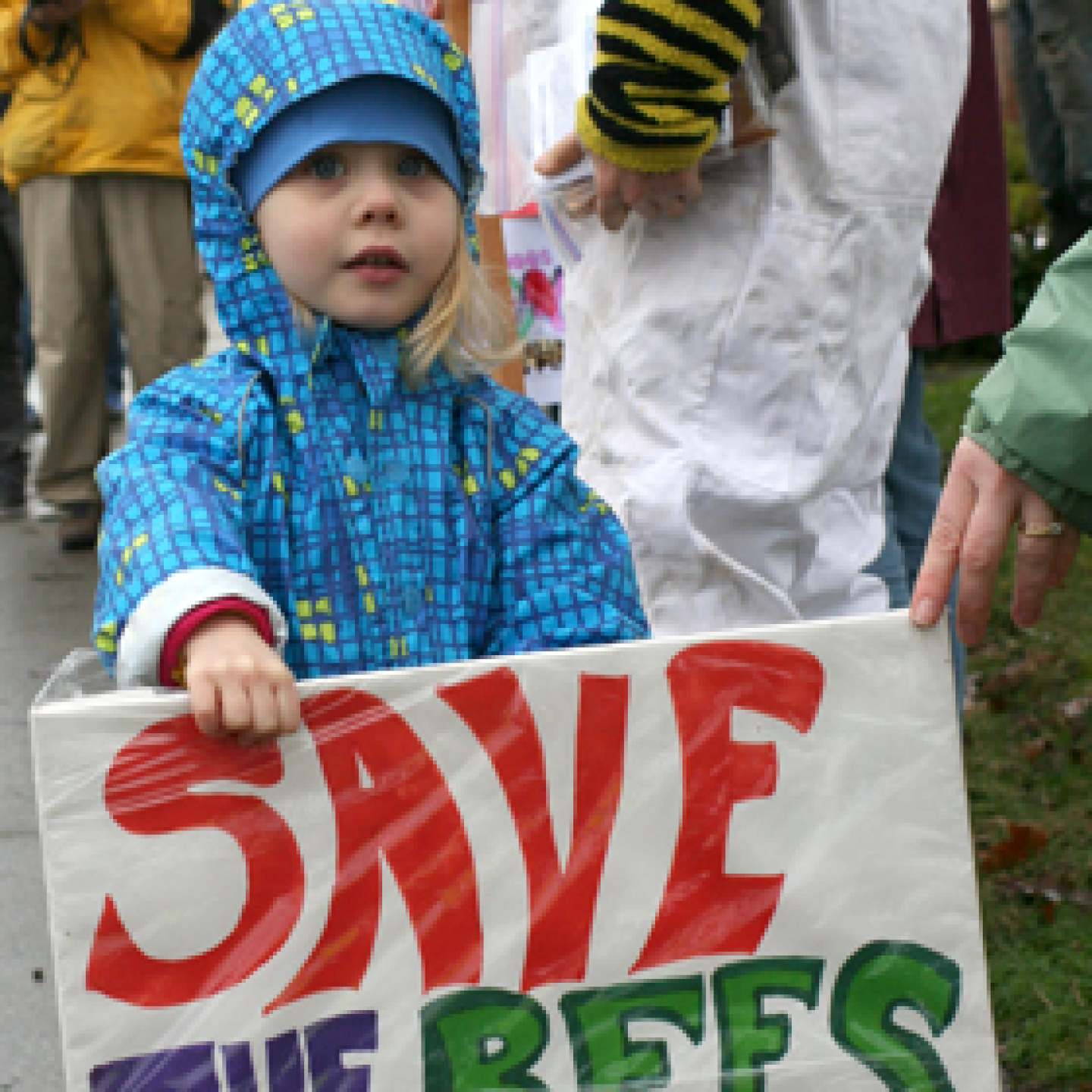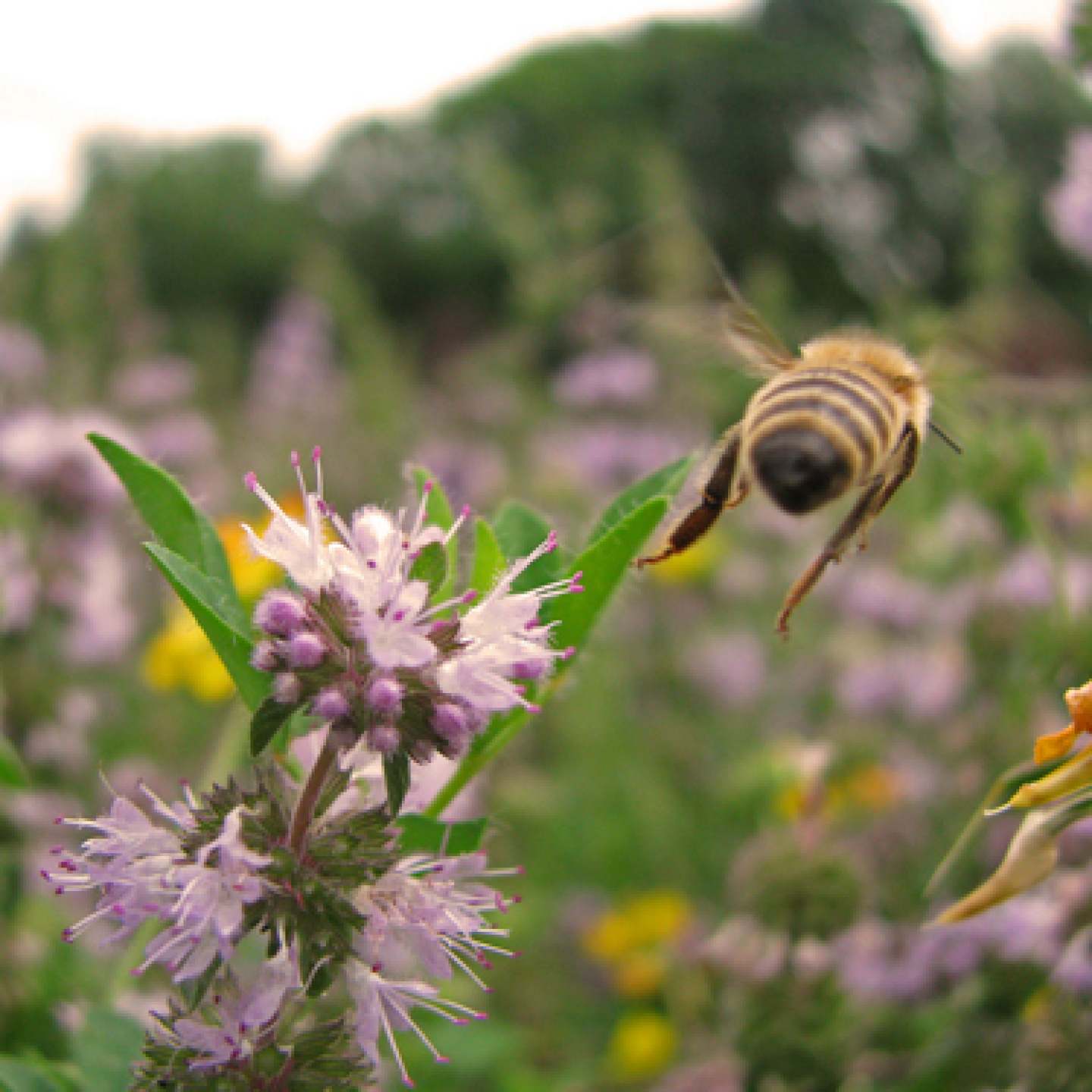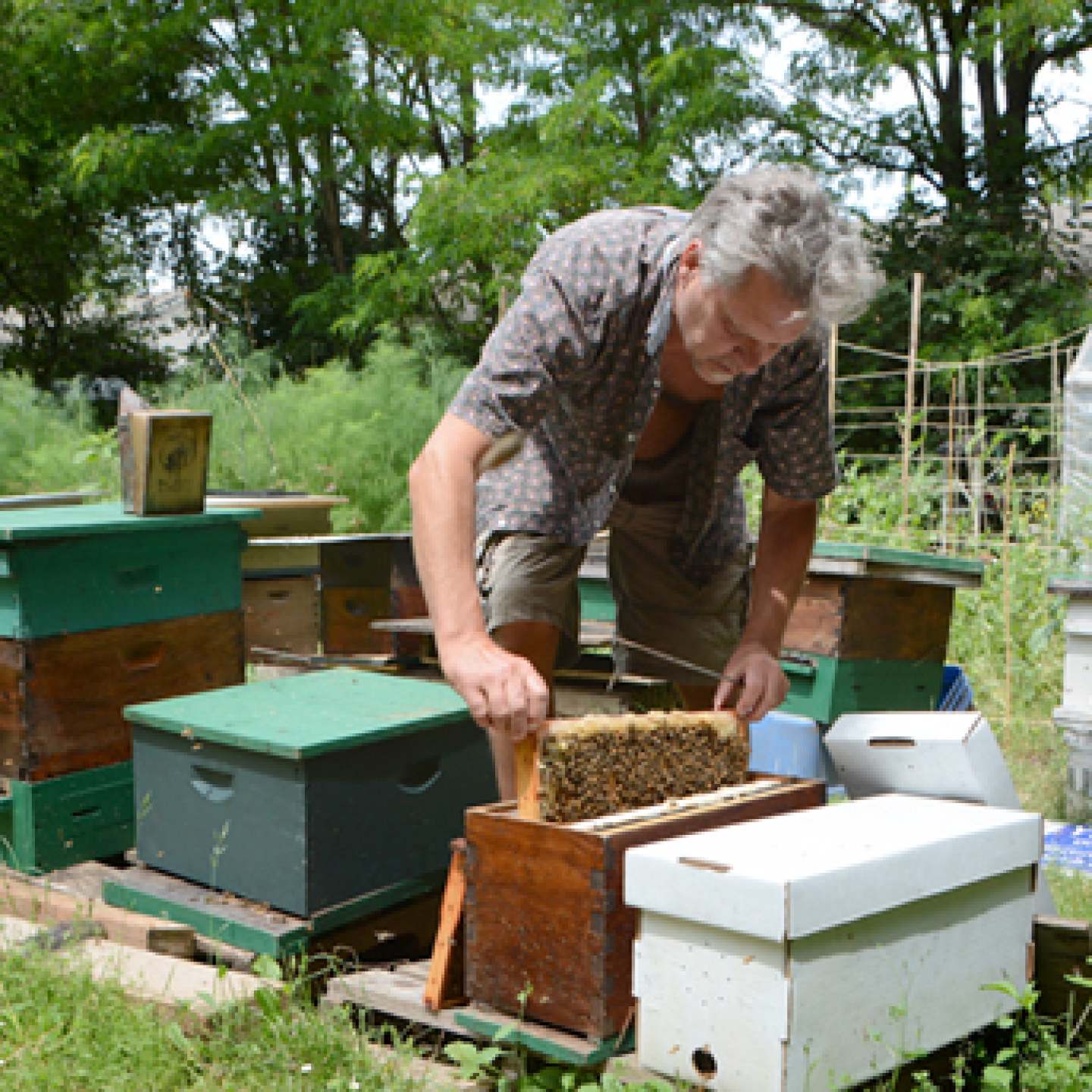By now, the whole world knows that seven documented bumble bee kill incidents happened in Oregon during 2013-2014. These bee slaughters were caused by applications of neonicotinoid insecticides.
Herbicides and Health Conference comes at the one-year anniversary of Oregon pesticide poisoning
One year ago, on October 16, 2013, people living near the town of Cedar Valley in Curry County could not have known that a helicopter pilot and a forestry consultant would carry out an aerial herbicide application above their homes. The pilot loaded his tanks with a concoction of 2,4D and triclopyr, two potent herbicides with a record of human health risks, and mixed them with petroleum oil. He flew four round trips over a residential area while carrying this chemical soup. As many as 45 residents became mysteriously ill after smelling chemicals fumes and feeling chemicals drop onto their faces.
Why am I weeding a watershed?
I just spent a large chunk of the day bent over patches of meadow knapweed with a sickle in my hand. Why in the heck am I spending a day swiping at an invasive weed near a river when I have plenty of weeds crying out for attention in my own yard? I do it because there is a lot at stake in one small, humble project to keep herbicides out of the Siuslaw watershed.
Environmental Justice: Air Agency’s Decisions Disproportionately Impact Minority and Low-Income Residents
We’re just fed up. Beyond Toxics has used all available channels to warn the Lane Regional Air Protection Agency (LRAPA) that it is ignoring its duty to protect the most vulnerable members of our community. Now we must turn to the United States Office of Civil Rights to ask for help to ensure that LRAPA follows recognized standards of justice and public health protections for the families of West Eugene.
Heartbreaking Day for Bees in Eugene during National Pollinator Week
Here it is summer time, when the flowers and trees are in bloom and jamborees of pollinators are busily buzzing in the flowers. It is also National Pollinator Week, a time to celebrate what bees, butterflies and other blossom-visiting species contribute to a healthy environment.
But we in Eugene, Oregon are mourning the loss of thousands of bees today.
A Failure to Protect: Oregon laws allow community poisoning
A pesticide helicopter operator was discovered lying to an Oregon rural community about what herbicides he sprayed, how much he sprayed and where he sprayed. Four months ago, Beyond Toxics filed a petition with three federal agencies claiming that not enough was being done to help more than two dozen residents of Cedar Valley, a rural area near Gold Beach on the Southern Oregon coast, who said they had been doused by herbicides from a forestry helicopter. The US Environmental Protection Agency and the Agency for Toxics Substances and Disease Registry stepped in to oversee the state’s investigation.
For bees, Oregon sets important new legislative precedents!
It started eighteen months ago, when a group of passionate and dedicated bee keepers came to the Beyond Toxics office to talk with us about the bees. They were well informed and brought published studies revealing the role pesticides play in the demise of honey bee colonies.
Bees, pesticides and freedom
Our freedoms come with responsibilities when our actions may affect, directly or indirectly, people’s welfare and the environment. The responsible person asks the question of what is at risk. We think that Oregonians want responsible legislation that helps prevent unintended harm and death to the hard working bees that make home gardens and bountiful harvests possible.
Bees by the Numbers
There are a lot of reasons to be concerned about the rapid decline of many species of bees worldwide. Honey bees and bumble bees have played a crucial role in human cultures for thousands of years. Today, even with more industrialized modern agriculture, the humble bee (both native and domesticated bee species) still plays a remarkably important role in bringing food to the tables of people all around the world.
